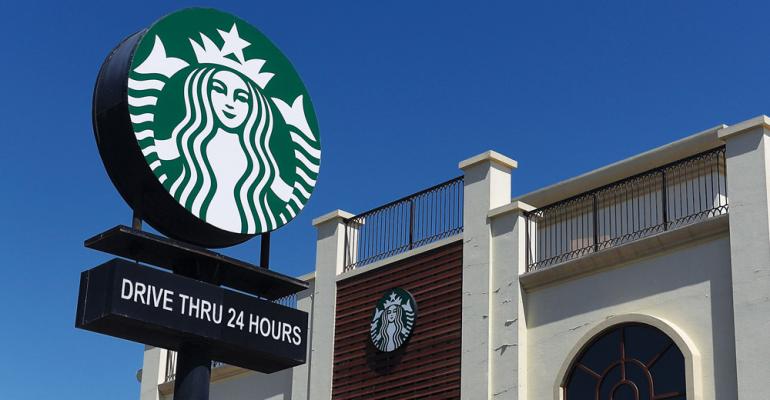(Bloomberg)—A group of investors led by New York City’s pension funds filed a shareholder proposal calling for an audit of workers’ rights at Starbucks Corp., escalating scrutiny over the coffee chain’s response to a widening US union campaign.
The resolution urges Starbucks directors to commission and publicly release a third-party assessment of the company’s compliance with its stated commitments to honor workers’ collective bargaining rights. It cites allegations of lawbreaking by Starbucks management, including store closures and retaliatory anti-union firings, some of which are now being pursued by the US National Labor Relations Board.
“We believe the apparent misalignment between Starbucks’ public commitments and its reported conduct represents material reputational, legal, and operational risks and may impact its long-term value,” according to the resolution, submitted Sept. 16 by city comptroller Brad Lander and several groups representing shareholders. Failure to respect workers’ rights could hurt the company’s reputation and its ability to attract workers, the group said.
The coffee chain’s shares rose 0.6% at 9:48 a.m. New York time. The stock has fallen 22% this year.
Starbucks declined to comment. The company has repeatedly said that it obeys US labor laws and that any claims of anti-union activity are “categorically false.” It has said that workers in question were fired because they failed to follow company policies and not because they sought to join a union.
Workers at more than 230 of Starbucks’ roughly 9,000 corporate-run US coffee shops have voted to unionize with Workers United since the group’s first landmark victory last December in Buffalo, New York. US labor board officials around the country have issued 30 complaints accusing the company of violating federal labor law, including by threatening and retaliating against workers trying to organize.
Those complaints are now pending with agency judges, whose rulings can be appealed to labor board members in Washington, D.C., and from there into federal court.
Lander said Starbucks’s conduct shows the chain isn’t living up to its commitments on freedom of association. He called on Starbucks to agree not to oppose workers’ unionization efforts, saying a new US corporate standard is emerging in which companies “genuinely remain neutral” when workers organize.
He cited employers such as Microsoft Corp. and Major League Baseball, which recently agreed to make it easier for employees to unionize. The group’s Starbucks proposal echoes a similar one Lander and others recently submitted at Apple Inc., which has yet to receive a vote from shareholders.
Public Pressure
While Starbucks is legally required to collectively bargain with workers at the hundreds of stores that have voted to unionize, organizers have said it will take significant public pressure -- including from investors -- to actually secure a good contract with the company.
That’s because federal law doesn’t require that companies make major concessions on issues that newly unionized workers care about, and the NLRB has limited remedies to respond to stonewalling at the bargaining table. Reaching an agreement after unionizing usually takes more than a year, and the process can drag on much longer.
New York City’s five pension funds own about $155 million shares of Starbucks, according to a spokesperson. The company’s total market capitalization is almost $105 billion.
The funds are proposing the resolution in conjunction with several other organizations including sustainability-focused firm Trillium Asset Management, which said the filing reflects investors’ increasing interest in labor rights. “That’s partially a result of Covid,” said Trillium’s chief advocacy officer, Jonas Kron, and “partially a result of changing expectations among workers as new generations move into the workforce.”
Kron said the appointment of a new Starbucks Chief Executive Officer Laxman Narasimhan, who is scheduled to take the top job in April, is a chance for the company to change course. “There really is an opportunity for a pivot,” he said.
© 2022 Bloomberg L.P.




